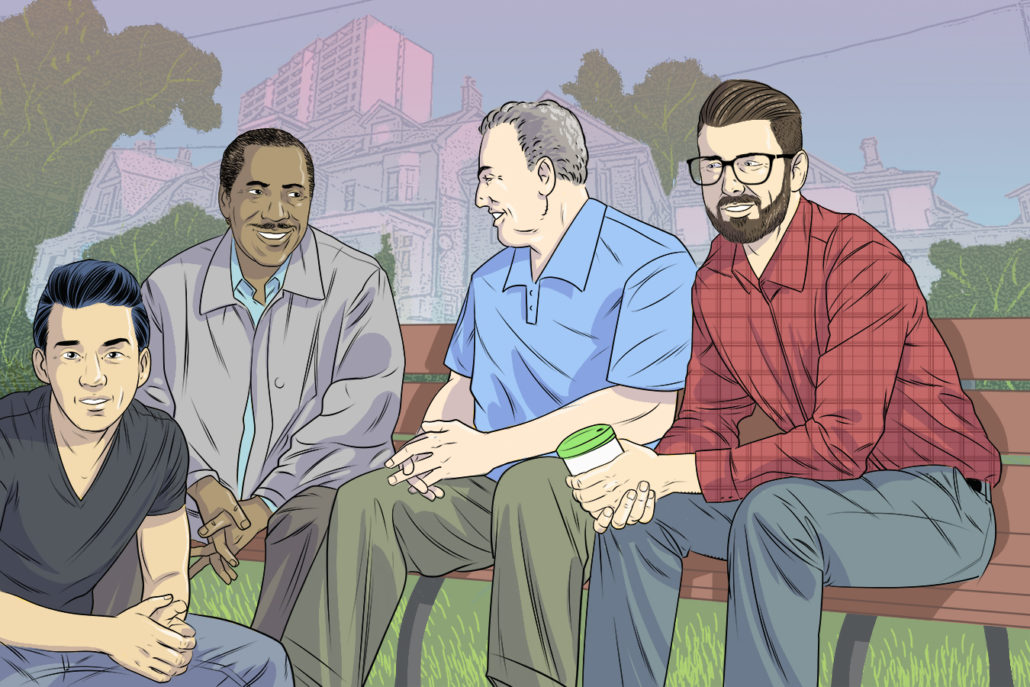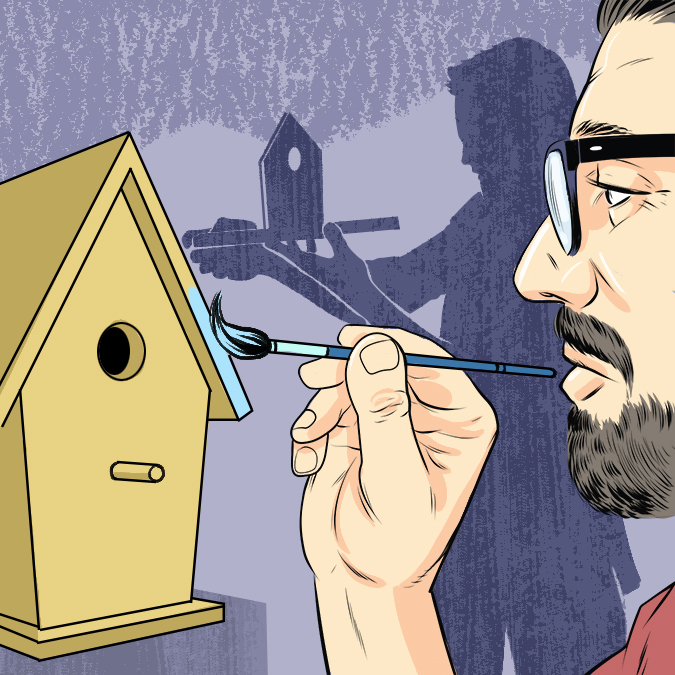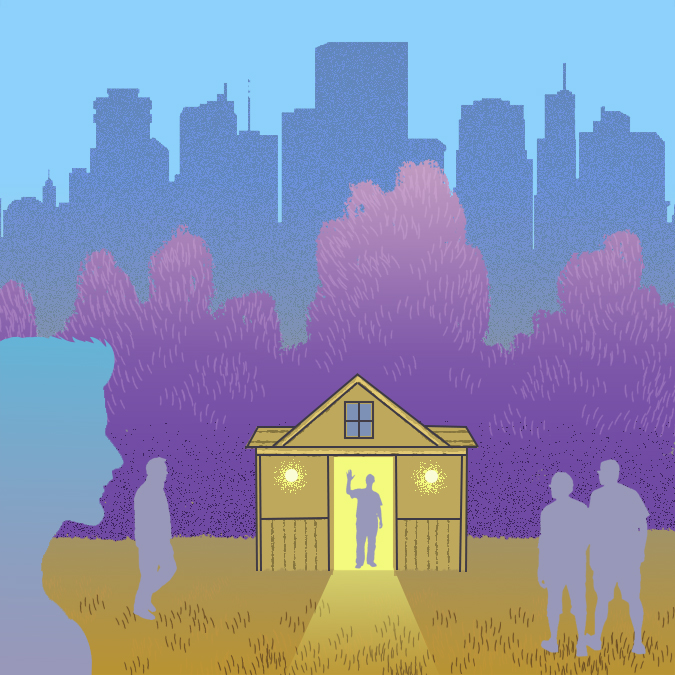
These creative alternatives to talk therapy are helping men open up in the GTA
The guys behind Next Gen Men didn’t create this not-for-profit to be humanitarians. They created it so young men could learn to support one another and talk about difficult feelings, because they needed it themselves. Both had recently been hit hard by mental health issues and discovered they had nowhere to go.
“My co-founder Jermal Alleyne (my best friend) had just lost his 13-year-old brother to suicide—we think due to homophobic bullying—and I had experienced a significant bout of depression,” says Jake Stika, executive director. Since they launched Next Gen Men in November 2014, more than 2,000 boys and young men in the GTA have participated in their after-school programs, workshops, field trips and presentations, which explore topics like masculinity, vulnerability, consent and violence prevention through games, activities and discussions in an all-male environment.
“At 13, if my friend’s brother had support like that, he’d still be with us today,” says Stika. “We know what the stakes are with men’s mental health issues—it’s literally life or death.”
A recent article in Psychology Today described men’s mental health as a “silent crisis,” pointing to higher rates of substance abuse, loneliness and suicide. It also reports that men—particularly men of colour—are statistically less likely than women to use mental health services. According to the Canadian Association for Suicide Prevention, in Canada, boys and men are three times more likely to die by suicide than girls and women.

Jackie Miranda-Calderon has been a community mental health program worker at United Way Greater Toronto-supported Jane Finch Community and Family Centre for a decade. In that time, she has shifted from a more traditional support-group approach and seen progress in her work with men. “I struggled myself with how to engage them more,” she says, “but then I came up with the idea that if I could do more hands-on activities—if something needed to be built—that could work to get men to come out of their shell.”
The men who visit the Jane Finch centre have since come together for informal activities that foster dialogue and communication. For example, as they spend time gardening together, the men address neighbourhood-specific problems like carding, housing insecurity and the school system.
“Men come in and they’re shy. And, with men of colour in our neighbourhood, there tends to be a sense of shame,” says Miranda-Calderon. “It’s embarrassing to talk about mental health issues, and this leads to men being cut off, sometimes even from their families. I am, however, seeing men open up, slowly, and share their experiences—and after that happens, we have seen some really big wins.”
Engaging in group experiences as a route to opening up is what Dr. Barry Golding popularized with The Men’s Shed movement. It began in rural Australian towns as a means for men to gather, ostensibly to make tools and share information. The men—many of whom had been socially isolated—gravitated towards communal shed activities at first due to the manual-work element, but once they were together, the healing started.
“The hard thing for many professionals is understanding the need for places, spaces and situations where participants are empowered to take control,” says Golding, who has spent 20 years studying men’s mental health. “In a Men’s Shed, there are no ‘professionals’ encouraging men to disclose. But there are lots of other men from diverse backgrounds on the same level: men enjoying an activity together.” Those activities might involve anything from repairing bikes to woodworking projects to yelling at a screen together during playoffs, but it’s in that comfortable context that trust develops and “it’s OK to talk and share openly about anything,” says Golding.

Today there are men’s sheds all over the world, including in most Canadian provinces (Ontario has three in rural towns). And in the GTA, community spaces such as the Malvern Family Resource Centre (MFRC)—supported by United Way Greater Toronto— have also started using unconventional approaches to support men’s mental well-being.
After receiving a grant to launch a one-year pilot mental health project, the MFRC plans to move beyond having men sit in a circle of folding chairs and asking them to talk about their feelings. Instead they’ve started a Men’s Club for over-55s, where activities like table tennis, cards and community involvement bring men together and help them transition more smoothly into their retirement years. “We’re looking at empowering men through leadership programs and giving them decision-making authority as a way to get them to engage,” says Amy Semenuk, MFRC’s community, family programs and services manager. “We know that non-traditional mental health practices go a long way toward reaching men.”
On the opposite end of Toronto, at Black Creek Community Farm, men can be urban farmers while reaping the mental health rewards that come with building trust and community. While the program isn’t men-only, its actionable approach to mental health gives men the chance to grow food and make social connections that buffer against feelings of isolation and hopelessness.
Gene Campbell, a 77-year-old man, worked in the mines in Sudbury before moving to Toronto to be with his family. “I never did talk much about my feelings,” he says. Today, instead of working things out in talk therapy, Campbell grows scallions, garlic and tomatoes with a group at Black Creek. The experience, he says, feels enriching. “It’s like a healing,” he says. “To see things grow that you put in the ground is a beautiful thing—it makes me feel alive.”
When it comes to tackling the male mental health crisis, reaching men where they feel comfortable is proving to be an important and exciting pathway to change across the GTA. As Next Gen Men co-founder Stika says, “Men not having the chance to express our vulnerability is killing us, literally. But it doesn’t have to be this way.”